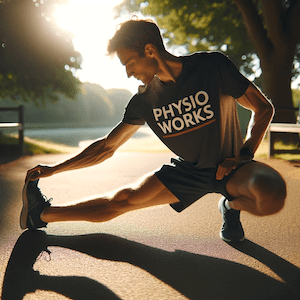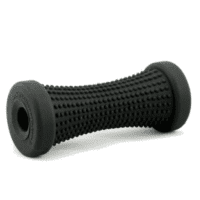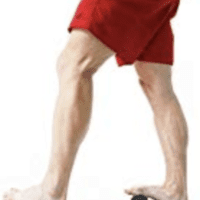Strength Exercises
Article by John Miller

Strengthening Exercises
Strengthening exercises are best known for bulking up your muscles and lift heavyweights. However, strengthening exercises have different requirements depending upon your treatment goals, sport or function.
Basic muscle strength is required for joint control during your simple everyday tasks. These tasks can include static activities (such as sitting or standing posture) or dynamic activities (such as walking, running, reaching, lifting or throwing). The tasks you require strengthening for pre-determines the specific strengthening exercises that will help you achieve your goals. Your physiotherapist is an expert who can guide you.
In addition to muscle strength, which can involve power, endurance, and contraction speed, the timing and balance of muscle contractions are very important.
Specific Muscle Strengthening
Your muscles have different roles to play. Muscles are predominately fast twitch, slow twitch or endurance-based stabilisation muscles. Their roles all differ, so they should be exercised depending upon their specific characteristics. For example,
Stability muscle exercises generally are low intensity – long-duration type exercises.
Dynamic strengthening exercises are more likely to be higher intensity (weight, speed, power) and shorter duration, but this can vary.
Eccentric strengthening exercises are important for both speed and weight-bearing control.
Each strengthening exercise and the speed that it is performed will strengthen your muscles in different ways. The best way to prioritise the exact strength exercises that are most appropriate to your needs is to discuss your case with your physiotherapist or sports coach.
What are Core Strength Exercises?
Core stability retraining is a vital component of optimising your core strength program while reducing your chance of injury and improved performance. In basic terms, your core muscle provides a solid platform that your dynamic muscles enact upon. In most cases, your abdomen or back core muscles are the best-known core muscles, but they also exist in other regions.
The important thing to remember is that if you are not performing core stability exercises, you should be! It’s one reason why elite athletes are elite performers.
More information about Core Exercises.
More Strengthening Exercise Advice
Your physiotherapist is an expert in assessing and correcting muscle strength deficits, timing, and individually prescribed strengthening exercises appropriate for your injury, sport, or lifestyle. It is important to remember that individual injuries, stage of rehabilitation, age, gender, sport, or activity level will dictate the best exercises suitable for you.
Seek the professional advice of your physiotherapist if you require more specific strengthening advice.
Article by John Miller
Does Warming Up Unlock Performance?


Starting your fitness routine with a thorough warm-up is crucial. It enhances flexibility, betters performance, and reduces the likelihood of injuries. Far from being an optional extra, it's a fundamental aspect of any effective exercise regimen.
Stretching: An Approach to Injury Prevention
Research from the British Medical Journal highlights the selective benefits of stretching. It's not a catch-all for injury prevention but it plays a significant role in warding off soft tissue injuries common in both elite sports and recreational activities. A strategic warm-up can notably decrease the risk of sustaining muscle, ligament, and tendon injuries.
The Joy of Exercise: Minimising Post-Workout Soreness
One of the unsung benefits of warming up is its ability to reduce post-exercise soreness. This reduction in discomfort contributes to a more enjoyable and consistent exercise routine, encouraging long-term fitness and health.
Dynamics of an Effective Warm-Up
Effective warming up is a dynamic process. It's about progressively preparing your body for the session ahead. A graduated series of exercises that mimic the upcoming activity can significantly minimise injury risks and elevate your readiness for peak performance.
Tailored Warm-Up for Tailored Needs
The personalisation of your warm-up routine can't be overstated. Each sport and activity demands specific preparations, and this is where professional input from a physiotherapist becomes invaluable. A targeted warm-up plan can enhance the efficacy of your routine and ensure it's perfectly aligned with your physical requirements.
Conclusion: The Essential Prelude to Peak Performance
In conclusion, warming up is not just a preliminary step; it's an essential prelude to any physical activity. It sets the tone for a safer, more efficient workout or sporting session, ensuring that your body is primed and ready to take on the challenges ahead. By adopting a comprehensive warm-up routine, you're investing in your body's ability to perform optimally and recover swiftly. Remember, the time spent warming up is never wasted; it's an investment in your health, performance, and longevity in your chosen physical pursuits. So, embrace the warm-up as an integral part of your exercise ritual, and step into your workouts with confidence and the assurance that you are well-prepared to perform at your best.


















